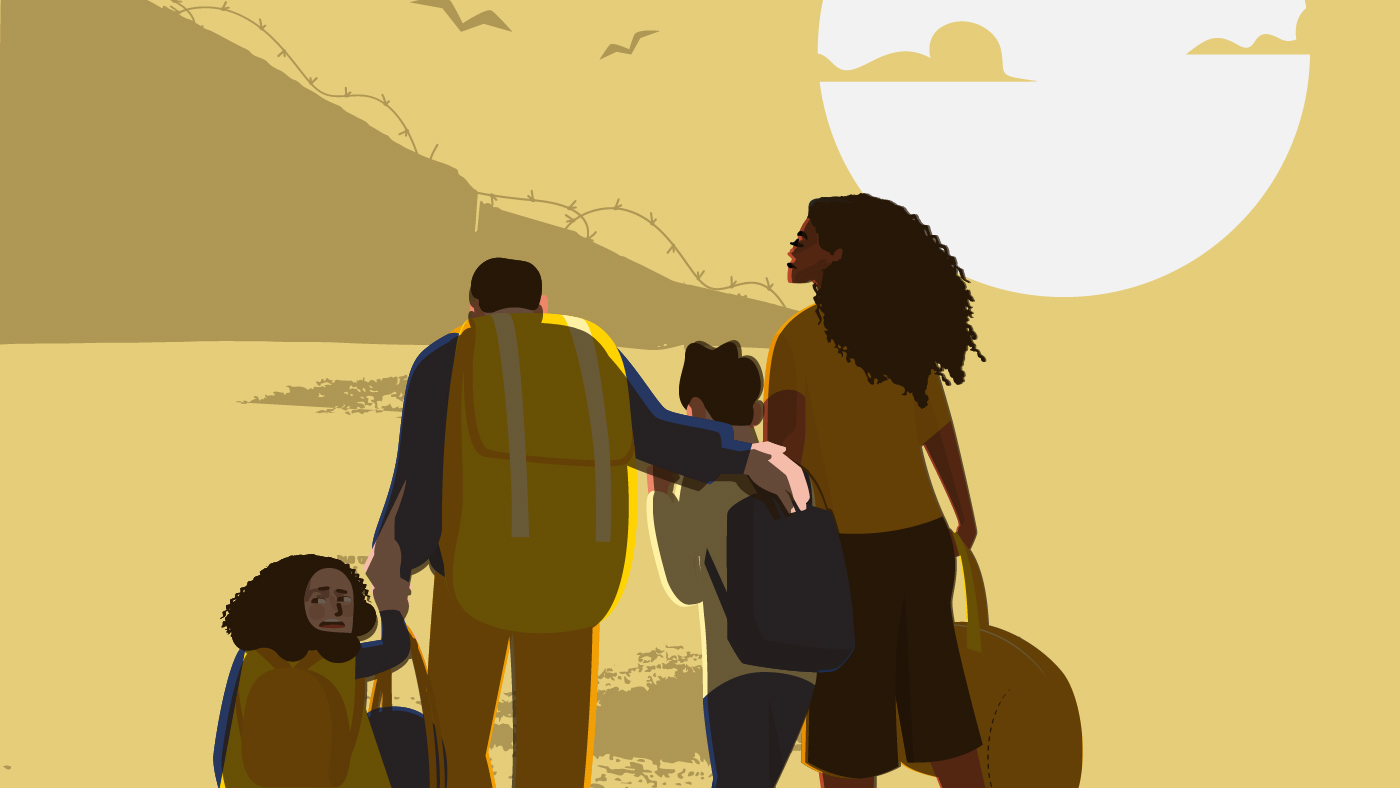Seattle U Law’s International Human Rights Clinic faculty and students seek to raise awareness of shocking conditions in Guerrero
Faculty and students in Seattle University School of Law’s International Human Rights Clinic have produced a new report that sheds light on the shocking and perilous situation confronting residents of Guerrero, a state in Southern Mexico plagued by rampant, indiscriminate violence and human rights violations.
As more and more residents flee the danger — including brutal killings, torture, aggravated rape, kidnappings, and forced displacement — the report, titled, “Fleeing Terror in Southern Mexico,” utilizes research and first-person interviews to methodically provide a rationale for granting these refugees asylum under U.S. law.
“These are people who have lost almost everything. What they want is extremely simple – a way to survive,” said Professor Thomas Antkowiak, who leads the clinic. “We have the laws in place that would allow them to find safety. We just need our government officials to respect their right to asylum.”
To that end, Antkowiak is working to place the report into the hands of people on the front lines, including the refugees themselves, attorneys working on their behalf, immigration authorities, and others who can use the information to either help build strong cases, or better understand what is happening, so more Guerrero residents can obtain asylum.
“I really hope that this report increases awareness of what is happening among the people who can do something so that willful ignorance is no longer a valid excuse,” said clinic student Catherine Mitri ’25.
To produce the report, Antkowiak and his seven clinic students worked intensively during the spring 2024 semester to research relevant U.S. laws and statutes, interview refugees who have experienced the violence firsthand, and comb news articles and human rights reports for relevant information. They also spoke with migration experts and Guerrero officials, including a current senator and Indigenous leader who was jailed as a political prisoner in Mexico several years ago. The clinic took her case and helped free her.
Mitri, a native of Honduras who is now in her third year, conducted many of the interviews of refugees due to her fluency in Spanish.
“Talking with them and hearing their stories directly humbles you and gives you a new perspective on how you look at life,” she said. “Through their accounts, we were able to get a better idea of what’s on the ground and the driving force leading to mass displacement of so many communities. It really helped to paint the bigger picture.”
“Despite the harms they had faced, no matter how traumatic, they expressed hope and love for their homeland. They didn’t want to leave but needed to leave,” said Chris Flory ’25, another clinic student who worked on the report.
The report’s main findings establish that many Guerrero residents can claim membership in a “particular social group” (PSG), a central element of U.S. asylum law, which allows them to seek protection. Some PSGs include indigenous persons, women, LGBTQ+ individuals, crime victims, journalists, political leaders, and other groups with common, immutable characteristics.
Flory helped to identify ways that Guerrero residents may be able to identify with certain PSGs.
“Working on this report was an amazing and fulfilling experience. It was very collaborative in nature, and we approached it in a multidisciplinary way, with social scientists, politicians, and others,” Flory said.
Antkowiak decided to tackle the project after taking a trip several years ago to the U.S.-Mexico border region at the invitation of the Kino Border Initiative (KBI), a Jesuit, Catholic humanitarian organization that shelters and feeds refugees. KBI had documented the fact that a disproportionate number came from Guerrero and collaborated with the clinic on the report.
Given the presence of organized criminal enterprises, including cartels, and documented instances of state actors committing human rights violations, residents cannot trust that the government can protect them from rampant crime and persecution. Additionally, no other part of Mexico can provide a haven, meaning that entry into the U.S. is often the only option to ensure their safety.
While the situation in Guerrero is grim, life at the border also presents extreme challenges for refugees.
“Things are constantly in flux. They are staying in shelters, in dangerous border towns, while waiting indefinitely for appointments with U.S. immigration officials. There are families with small children who are not in school, just scraping by trying to pick up work. Nearly all lack attorneys,” Antkowiak said.

